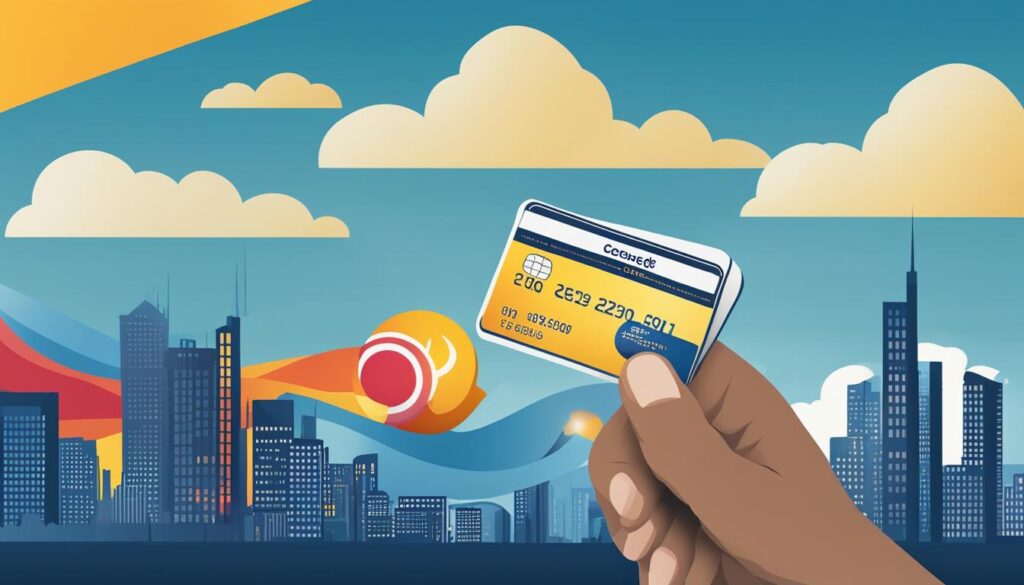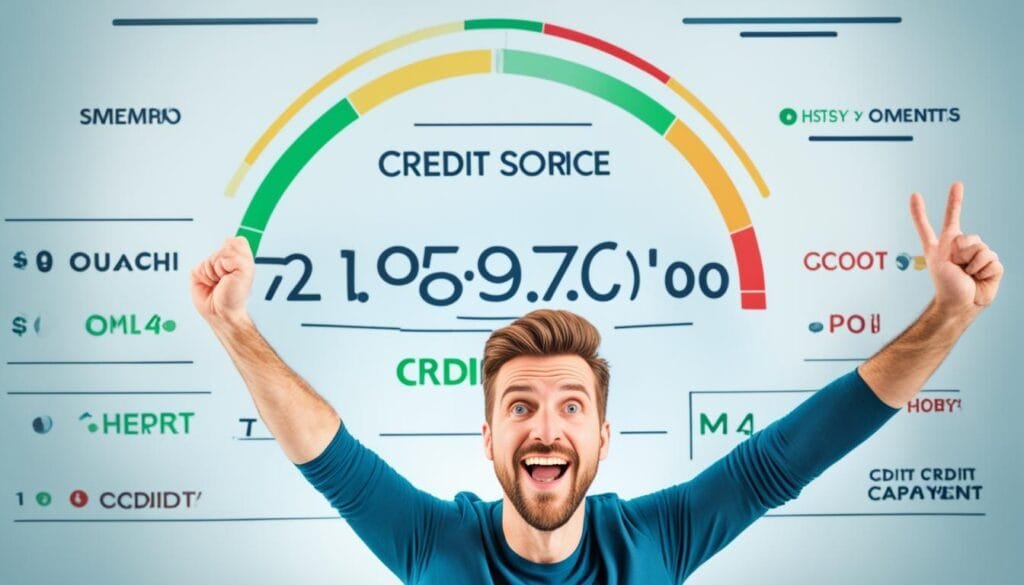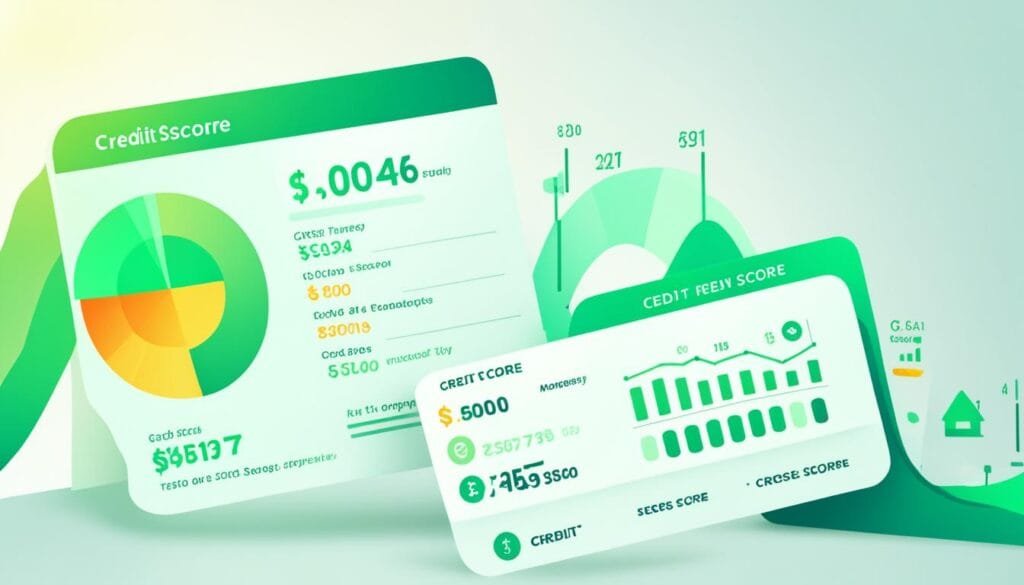Meet Sarah, a recent college graduate who is excited to start building her credit score and financial future. Like many young adults, Sarah is aware of the importance of having a good credit score, but she is unsure where to begin. She knows that responsible credit card use is a key factor in building credit, but with limited credit history, traditional credit cards are not easily accessible for her. That’s when she discovers the power of secured credit cards.
A secured credit card is a great tool for individuals like Sarah who are looking to establish credit or rebuild their credit. It requires a cash deposit as collateral, reducing the risk for lenders and making it more accessible for those with limited or no credit history. Secured credit cards typically come with low credit lines and high interest rates, but they provide an opportunity to prove responsible credit card use and start building a positive credit history.
Sarah starts using her secured credit card responsibly. She makes small purchases within her budget and ensures to pay off the statement balance in full every month. By doing so, Sarah demonstrates her ability to manage credit responsibly and establishes a positive payment history. Over time, she begins to see her credit score improve, opening doors to better financial opportunities.
Using a secured credit card is only the first step in Sarah’s credit-building journey. As she continues to practice responsible credit card habits, she will pave the way for unsecured credit cards with higher credit limits and better terms. So, whether you’re a recent graduate like Sarah or someone looking to establish credit, a secured credit card can be a valuable tool in your financial arsenal.
Key Takeaways:
- A secured credit card requires a cash deposit as collateral and is accessible for those with limited or no credit history.
- Using a secured credit card responsibly helps establish a positive credit history and improves your credit score.
- Practicing responsible credit card use with a secured card can lead to better financial opportunities in the future.
- Secured credit cards are a valuable tool in building credit and improving financial health.
- Paving the way for unsecured credit cards with higher credit limits and better terms is possible by using a secured card responsibly.
How to Use a Secured Credit Card to Build Credit
Building credit with a secured credit card involves several key habits. By using a secured credit card responsibly and practicing credit-building habits, you can establish a positive credit history and improve your credit score relatively quickly.
- Make small everyday purchases with the card: Start by making small, regular purchases that you can comfortably afford using your secured credit card. This helps demonstrate responsible credit card use and establishes a positive payment history.
- Pay your statement balance in full every month: It’s essential to pay off your entire statement balance in full every month. This ensures that you’re not carrying a balance and prevents accumulating interest charges. Paying your bill on time shows lenders that you can manage credit responsibly.
- Keep your credit utilization low: Try to avoid maxing out your secured credit card and aim to keep your credit utilization below 30%. Higher credit utilization can negatively impact your credit score. Pay down existing debts to reduce your credit utilization and demonstrate responsible credit management.
- Monitor your credit score and credit report: Stay vigilant about your credit score and regularly check your credit report for any errors or inaccuracies. Monitoring your credit allows you to track your progress and take necessary steps to correct any discrepancies.
Example:
“Using a secured credit card requires discipline and responsible financial habits. By using the card for everyday expenses and consistently paying off the balance in full, I was able to establish a positive payment history and raise my credit score. It’s important to be mindful of your credit utilization and actively monitor your credit report to ensure accuracy. These credit-building habits helped me qualify for an unsecured credit card with a higher credit limit.”
– Emily Johnson, Secured Credit Card User
By consistently practicing these credit-building habits, you can effectively use a secured credit card to build credit and improve your financial standing. It’s important to remain patient and committed to responsible credit card use as it takes time to see significant improvements in your credit score.
Comparison of Secured Credit Cards
When choosing a secured credit card, it’s essential to consider the terms and features that suit your needs best. Here is a comparison of some popular secured credit cards:
| Secured Credit Card | Annual Fee | Cash Deposit Requirement | Rewards Program |
|---|---|---|---|
| Capital One® Secured Mastercard® | $0 | Varies | No |
| Discover it® Secured | $0 | Varies | Yes |
| OpenSky® Secured Visa® Credit Card | $35 | $200 | No |
| Citi® Secured Mastercard® | $0 | Varies | No |
https://www.youtube.com/watch?v=JVzBk-JU0A8
Comparing different secured credit cards allows you to assess their features, fees, and rewards programs. Choose the card that aligns with your financial goals and offers the most favorable terms.
How Much Will a Secured Credit Card Improve Your Credit Score?
While using a secured credit card can have a significant impact on improving your credit score, the exact increase cannot be determined. However, with responsible credit card use, you can expect to see positive changes within six months.
The improvement in your credit score depends on various credit-building factors, including:
- Payment history: Making on-time payments consistently.
- Credit utilization: Keeping your balances low and avoiding maxing out your card.
- Length of credit history: The longer you maintain a positive credit history, the better.
- Credit mix: Having a diverse range of credit types, such as credit cards and installment loans.
- New credit: Applying for new credit sparingly.
By diligently practicing these credit-building habits, you can enhance your credit score and improve your overall financial standing.

| Credit-Building Factors | How to Improve |
|---|---|
| Payment History | Make on-time payments consistently. |
| Credit Utilization | Keep balances low and avoid maxing out the card. |
| Length of Credit History | Maintain a positive credit history over time. |
| Credit Mix | Diversify credit types (credit cards, loans, etc.). |
| New Credit | Apply for new credit sparingly. |
Upgrading from a Secured Credit Card to an Unsecured Credit Card
Many credit card issuers offer the opportunity to upgrade from a secured credit card to an unsecured credit card after a period of responsible use. This upgrade allows cardholders to enjoy the benefits of an unsecured card, such as higher credit limits and the potential for rewards programs.
When should you consider upgrading to an unsecured credit card? It’s essential to maintain positive credit habits for at least six months with your secured card. This means consistently making on-time payments, keeping your credit utilization low, and managing your finances responsibly. It’s also vital to regularly check your credit score and review your credit report for accuracy.
Before making the switch, it’s important to read the terms and conditions of your secured card. Some credit card issuers automatically transition secured cardholders to unsecured cards, refunding the security deposit and providing a higher credit limit. However, in other cases, cardholders may need to close their secured card and apply for an unsecured credit card independently.
Applying for an unsecured credit card typically involves a similar process to applying for a secured card. You may need to complete an application, provide personal and financial information, and undergo a credit check. It’s crucial to choose an unsecured credit card that meets your needs and offers favorable terms, such as low fees and competitive interest rates.
By upgrading to an unsecured credit card, you can continue building your credit history and enjoy the benefits of a card with more flexibility and potential rewards. Remember to make responsible credit decisions, keep your balances low, and establish a positive payment history to maximize the advantages of an unsecured credit card.
Benefits of Upgrading to an Unsecured Credit Card
Upgrading from a secured credit card to an unsecured credit card can offer several benefits:
- Higher Credit Limit: Unsecured credit cards typically come with higher credit limits, giving you more purchasing power.
- Rewards Programs: Many unsecured cards offer rewards programs that allow you to earn points, cashback, or other incentives for your purchases.
- No Security Deposit: Unlike secured cards, unsecured cards do not require a security deposit, enabling you to use your money for other purposes.
- Credit Building Opportunities: Upgrading to an unsecured card can further enhance your credit-building efforts and improve your credit score over time.
Example of an Unsecured Credit Card Option
| Card Name | Annual Fee | APR | Rewards |
|---|---|---|---|
| XYZ Bank Platinum Card | $0 | 15.99%-23.99% | 1% cashback on all purchases |
Note: The table above is for illustrative purposes only. Please refer to the credit card issuer’s terms and conditions for accurate and up-to-date information.

Upgrading from a secured credit card to an unsecured credit card is a significant milestone on your credit-building journey. By following responsible credit habits, understanding the terms of your secured card, and choosing an unsecured card wisely, you can continue to improve your credit and enjoy the benefits of an unsecured credit card.
How can using a secured credit card help improve my credit score to ensure I can pay my bills on time every month?
Using a secured credit card is one of the best strategies for paying bills on time and improving your credit score. By making regular, on-time payments, you demonstrate responsible credit management, which can positively impact your credit score. This can help ensure you can pay your bills on time every month.
Conclusion
Secured credit cards offer a valuable opportunity for individuals looking to build credit responsibly and improve their financial standing. By using a secured credit card responsibly and practicing essential credit-building habits, you can establish a positive credit history and make progress towards obtaining unsecured cards with higher credit limits.
It is essential to understand the terms and fees associated with secured cards to make informed decisions. Additionally, being aware of the possibility of transitioning from a secured card to an unsecured card is important. Some credit card issuers automatically upgrade secured cardholders to unsecured cards after a period of responsible use, while others may require an independent application.
In conclusion, using a secured credit card as a tool for responsible credit card use can unlock your financial potential and pave the way for a better credit future. By establishing a positive credit history through responsible usage and consistently maintaining good credit habits, such as making on-time payments and keeping credit utilization low, you can build a stronger credit foundation. Remember, building credit responsibly is a journey that requires patience and discipline, but the rewards are worth it.
FAQ
What is a secured credit card?
A secured credit card is a type of credit card that requires a cash deposit as collateral. This deposit helps mitigate the risk for lenders and allows individuals with low credit scores or limited credit history to obtain a credit card.
How can I use a secured credit card to build credit?
To build credit with a secured credit card, make small everyday purchases and pay your statement balance in full every month. It’s also important to keep your credit utilization low and actively monitor your credit score and credit report.
How much will a secured credit card improve my credit score?
The exact increase in your credit score from a secured credit card cannot be determined. However, by practicing responsible credit card use, such as making on-time payments and keeping your balances low, you can positively impact credit-building factors and see improvements in your credit score.
Can I upgrade from a secured credit card to an unsecured credit card?
Some credit card issuers automatically transition secured cardholders to unsecured credit cards after a period of responsible use. However, in some cases, you may need to close your secured card and apply for an unsecured card independently. It’s important to read the terms and conditions of your secured card to understand the rules regarding transitioning to an unsecured card.

